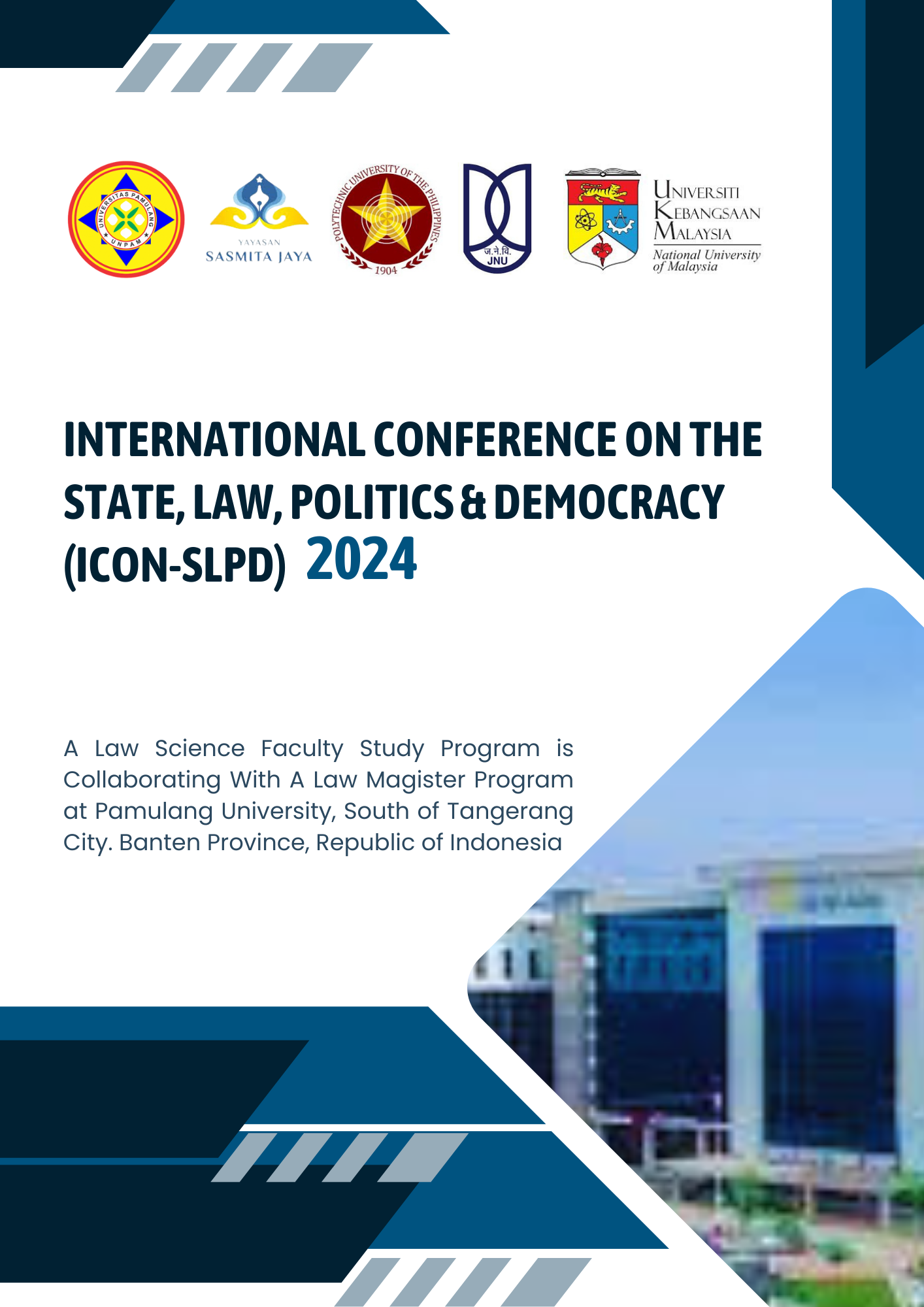The Relevance Of Electronic Know Your Customer As The Principle Of Customer Identification For Notaries In Creating Authentic Deeds As Efforts To Prevent Money Laundering Crimes
Keywords:
EKYC, principle of identifying users, money launderingAbstract
Notaries not only have the authority to create authentic deeds but also have the authority to identify their users through EKYC as part of anti-money laundering efforts. The purpose of this article is to explore the relevance of implementing the principle of identifying users in accordance with Minister of Law and Human Rights Regulation No. 9 of 2017 on the authority of notaries and its legal consequences. According to the author, notaries who do not implement this principle through the EKYC system could face legal consequences. This research adopts a normative approach. The results indicate that the authority of notaries to implement the principle of identifying users is granted by Minister of Law and Human Rights Regulation No. 9 of 2017, and the legal consequences for notaries who fail to implement this principle may include administrative sanctions under the Notary Law and lack of support for government programs on combating money laundering.
References
Adi Permana, “Mengenal Sistem e-KYC: Manfaat dan Keuntungannya di Era Digital”, terdapat disitus https://www.itb.ac.id/berita/mengenal-sistem-e-kyc-manfaat-dan-keuntungannya-di-era-digital/58560, diakses pada tanggal 6 Juli 2023.
Adjie, H. (2011). Hukum Notaris Indonesia Tentang Jabatan Notaris. Bandung: Refika Aditama
Afif Farhan ,Cindy, Perlindungan Hukum Data Pribadi Di Indonesia, Seminar Nasional Hasil Penelitian Dan Pengabdian Kepada Masyarakat 2022 Penguatan Ekonomi Bangsa Melalui Inovasi Digital Hasil Penelitian Dan Pengabdian Kepada Masyarakat Yang Berkelanjutan Jakarta, 20 Oktober 2022
Asshiddiqie, Jimly., & Safa’at, A. (2006). Teori Hans Kelsen Tentang Hukum. Jakarta: Sekretariat Jenderal & Kepaniteraan Mahkamah Konstitusi RI
Dea Derika, “Fungsi Notaris Dalam Pemeriksaan Identitas Penghadap Terhadap Autentisitas Akta Dihubungkan Dengan Asas Kehati-hatian”, Jurnal Ilmu Hukum: Syiar Hukum, Vol. 18, No. 2, 174.
Diego Belva Putra, M. Abd. Malik Hakim dan Bambang Nurdewanto, “Implementasi Electronic-Know Your Customer pada aplikasi Fintech untuk meningkatkan keamanan akun user”, Journal of Information System and Application Development, Volume 1, Number 2 (2023).
Mahfud MD, Konstitusi dan Hukum dalam Kontroversi Isu, Raja Wali Pers, Jakarta,2009, hlm. 287
Prastyo, Brian Army. "Peluang dan Tantangan Cyber Notary di Indonesia.", (2014), https://staff.blog.ui.ac.id/brian.amy/2009/11/29/peluang-cyber-notary-di-indonesia/,
R. Soegondo Notodisoerjo, "Hukum Notariat di Indonesia Suatu Penjelasan." Rajawali Pers, Jakarta (1982), 42.
Sutan Remi Sjahdeni, 2003, “Pencucian Uang: Pengertian, Sejarah, Faktor Penyebab, Dan Dampaknya Bagi Masyarakat”, Jurnal Hukum Bisnis, Vol 22 No 3.
Tumalun, B. (2018). Upaya Penanggulangan Kejahatan Komputer Dalam Sistem Elektronik Menurut Pasal 30 Undang Undang Nomor 11 Tahun 2008. Jurnal Lex Et Societes 6, 24.
Urip Prayitno dan Moh. Saleh, “The Urgency of Applying Article 39 paragraph (2) UUJN Against Prevention of Indications of Criminal Acts in Notary Deeds”, Jurnal Ilmu Syariah, Perundang-undangan dan Ekonomi Islam, Vol. 15 No. 2 (Februari-Juni2023): 58-70.
Zuhriyandi dan Malik Alfannaja, “Penafsiran Ayat-Ayat Tentang Teknologi dan Inovasi Dalam Al-Qur’an: Implikasi Untuk Pengembangan Ilmu Pengetahuan di Era Modern”, Jurnal Cendekia Ilmiah, Volume 2, Nomor 6, Oktober 2023





